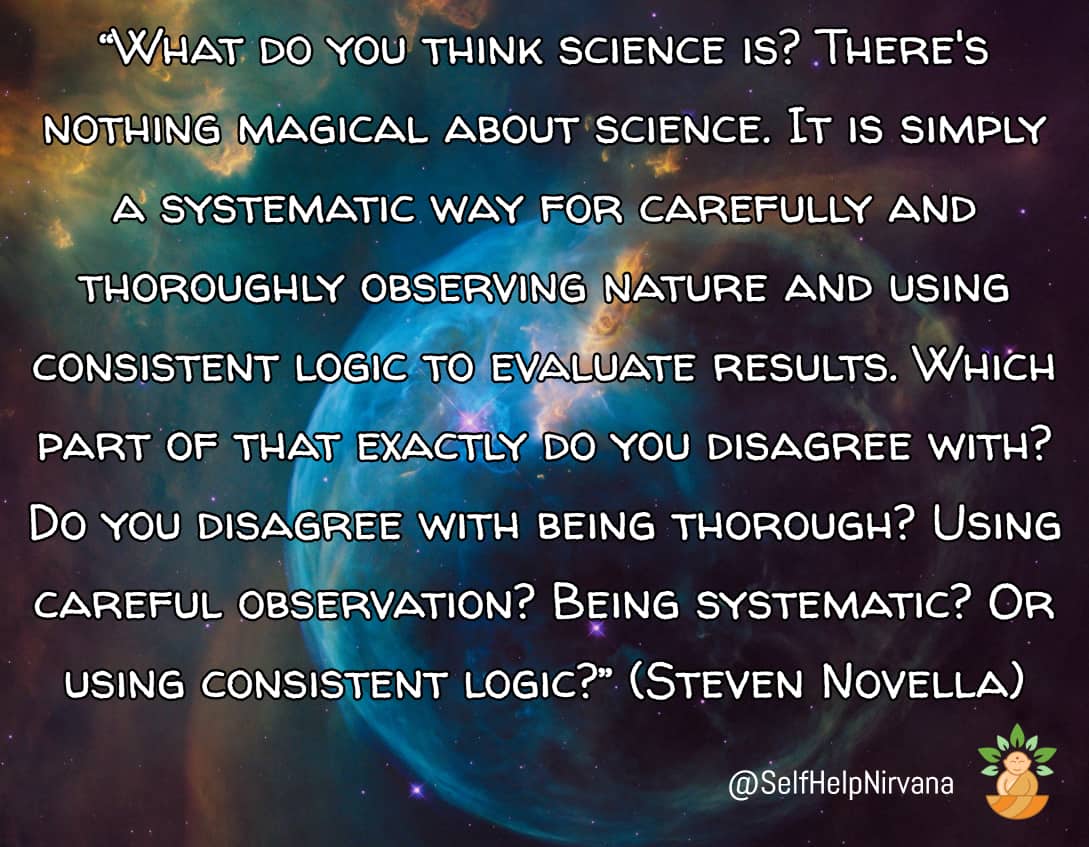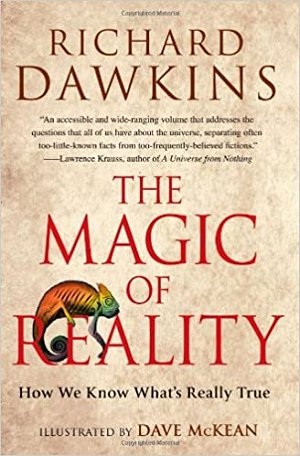My Thoughts On The Magic Of Reality
I apparently purchased The Magic Of Reality, by Richard Dawkins, way back in 2015, but somehow forgot about it, and only rediscovered it by accident – and I’m glad I did.
While many of Richard’s books are somewhat heavy going, this one isn’t because the target audience is younger.
What it does is discuss a dozen different topics, and for most of these, where it’s relevant, he mentions a few of the common myths that have arisen regarding those subjects, and then goes on to present what has been discovered as a result of science.
It’s important to note, at this stage, that the word “science” is often misused, as though it’s a thing that exists, whereas in fact it is simply shorthand for a process, more formally known as the Scientific Method.
In essence, this is a process by which a hypothesis is formed (e.g. about how certain things in our universe work), tests are performed, the results analysed, and then a decision is made – either the hypothesis was incorrect (i.e. the proposed model is not an accurate way of describing reality) or the hypothesis was not disproven, in which case further tests might be undertaken before the hypothesis becomes a scientific theory. (Note also that scientists use the word “theory” in a different way to common parlance, where it has more the meaning of an idea. A theory, in science, is as good as it gets.)
If you want to know more about the scientific method, you could start here.
For those of you who are not aware, Richard Dawkins is a British ethologist and evolutionary biologist, and is an outspoken atheist, being one of the so-called Four Horsemen of new atheism, the others being Daniel Dennett, Sam Harris, and the late Christopher Hitchens.
As such, he is well used to criticisms from people, mainly of faith, about science, and I think this quote from Steven Novella sums up what science (or, as mentioned above, the scientific method) is perfectly:

Some people will say that science is always changing its mind, but that’s because true scientists are happy to accept that they didn’t get it quite right. In fact, this is the strength of science because it’s a process that gradually allows us to build on what we already know and refine our models so that they become increasingly accurate and map to reality more and more closely.
So, with that out of the way, what do the chapters cover?
Well, here is the list of contents:
- What is reality? What is magic?
- Who was the first person?
- Why are there so many different kinds of animals?
- What are things made of?
- Why do we have night and day, winter and summer?
- What is the sun?
- What is a rainbow?
- When and how did everything begin?
- Are we alone?
- What is an earthquake?
- Why do bad things happen?
- What is a miracle?
Each chapter is written in an easy-to-understand way, and although the chapter headings, shown above, suggest that the topics are somewhat narrow, many go broader than you might at first think, because many of the concepts discussed in this book overlap, or you need to know some of the foundational information before getting to the main topic.
The first chapter is of particular importance because it sets the scene for the rest of the book and defines three types of magic, only one of which equates to the way it’s used in this book (and which is different to the meaning of “magic” used in the quote above by Steven Novella).
The remaining chapter titles are pretty self-explanatory, but as I said, they usually cover additional details you might not expect.
Conclusion
While the book is intended for a younger audience, I do think it’s something that many people would benefit from reading, as this disturbing quote from the chapter about winter and summer shows:
“There are even some people who don’t understand that the Earth takes a year to orbit the sun – indeed, that’s what a year is! According to a poll, 19 per cent of British people think it takes a month, and similar percentages have been found in other European countries.“
I am now in my early 60s, and while much of this information was familiar to me, at a certain level at least, I have learned many facts that I previously did not know.
I would see this book being a great springboard from which to delve deeper into understanding the universe in which we live, whetting children’s appetites for knowledge that is, by definition, backed by evidence (otherwise it’s not really knowledge), but as I said above, I definitely recommend The Magic Of Reality for almost everybody, child and adult alike.
Finally, it’s worth noting that I read the Kindle edition, which, like the paperback edition, lacks the illustrations and photos that exist only in the hardback version, and these graphical aids may, of course, make it easier to understand and more interesting to read for youngsters. You may pay a bit more for the hardback version, but the extra cost might be worth it, depending on your reason for buying it. (And don’t forget you should be able to borrow a copy via your local library, if all else fails.)
Additional Resources
These are suggestions for those who wish to delve deeper into any of the above:







